Steph Post's Blog, page 12
August 3, 2018
Book Bites: Rob Hart, author of Potter's Field
If you read crime fiction or mysteries (and haven't been living under a rock these past few years), then you know Rob Hart. With his break-out news about next summer's The Warehouse, his Anthony nominations, his workshops over at LitReactor, his forthcoming Food-Noir collection (stories of "culinary crime") or, you know, the five novels he's published in the past four years, Rob Hart has been more than a little busy.
Potter's Field
, the fifth and final installment in his Ash McKenna series that began back with Hart's debut
New Yorked
, hit shelves in July and is, of course, garnering a lot of buzz. Lucky for you, Rob Hart took a breather and stopped by to answer a few quick questions. Enjoy!
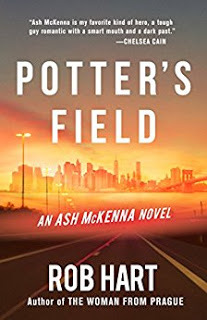 “Brings the series to a satisfying close...gripping action sequences...Hart has a fine command of wiseguy comments, a modern take on the noir crime idiom, and enough vulnerability in his protagonist to make the reader sorry to see the last of Ash.” ―Publishers Weekly
What drew you to the genre you write in?
“Brings the series to a satisfying close...gripping action sequences...Hart has a fine command of wiseguy comments, a modern take on the noir crime idiom, and enough vulnerability in his protagonist to make the reader sorry to see the last of Ash.” ―Publishers Weekly
What drew you to the genre you write in?
I like crime fiction because you're generally dealing with people at their rock bottom, which is when you really get the measure of a person.
Have you ever given up on a writing project?
A few! The biggest was a novel called Not Yet Lost. It was a horror story with this weird meta-narrative and it might have been a bit too ambitious--I don't think I was ready to write it. I got up to 70k words and just sort of fizzed out, so I put it away. I may come back to it at some point, even to scrap it for parts.
What piece of your own writing are you most proud of?
I wrote a story called "Creampuff" that was in the Unloaded anthology, and will be in my collection food-noir, Take-Out, coming out in January. Out of all the stories I've written it's my favorite. Not even really sure why. Just do. But I'm also really excited for people to read The Warehouse. It's the closest I've gotten to the kind of writer I want to be.
What was the best review you ever received? The worst?
The best and worst were for my first novel, New Yorked. I was so afraid of what my mom would think, because here was this character roughly my age who was a heavy drinker and drug user and just an utter idiot, and after she read it she said, "I felt bad for him." And that just really cut to the heart of what I was trying to do. The worst was the person who bought the book and left a one-star review calling it "too New Yorkie."
What is the best piece of writing advice you’ve ever received?
From Amy Hempel, who is probably the best living short story writer: The biggest mistake young writers make is wanting to publish more than wanting to write well.
 “Brings the series to a satisfying close...gripping action sequences...Hart has a fine command of wiseguy comments, a modern take on the noir crime idiom, and enough vulnerability in his protagonist to make the reader sorry to see the last of Ash.” ―Publishers Weekly
What drew you to the genre you write in?
“Brings the series to a satisfying close...gripping action sequences...Hart has a fine command of wiseguy comments, a modern take on the noir crime idiom, and enough vulnerability in his protagonist to make the reader sorry to see the last of Ash.” ―Publishers Weekly
What drew you to the genre you write in?
I like crime fiction because you're generally dealing with people at their rock bottom, which is when you really get the measure of a person.
Have you ever given up on a writing project?
A few! The biggest was a novel called Not Yet Lost. It was a horror story with this weird meta-narrative and it might have been a bit too ambitious--I don't think I was ready to write it. I got up to 70k words and just sort of fizzed out, so I put it away. I may come back to it at some point, even to scrap it for parts.
What piece of your own writing are you most proud of?
I wrote a story called "Creampuff" that was in the Unloaded anthology, and will be in my collection food-noir, Take-Out, coming out in January. Out of all the stories I've written it's my favorite. Not even really sure why. Just do. But I'm also really excited for people to read The Warehouse. It's the closest I've gotten to the kind of writer I want to be.
What was the best review you ever received? The worst?
The best and worst were for my first novel, New Yorked. I was so afraid of what my mom would think, because here was this character roughly my age who was a heavy drinker and drug user and just an utter idiot, and after she read it she said, "I felt bad for him." And that just really cut to the heart of what I was trying to do. The worst was the person who bought the book and left a one-star review calling it "too New Yorkie."
What is the best piece of writing advice you’ve ever received?
From Amy Hempel, who is probably the best living short story writer: The biggest mistake young writers make is wanting to publish more than wanting to write well.
Published on August 03, 2018 06:14
July 27, 2018
Book Bites: Angel Colon, author of Pull and Pray
Nobody does wild, crazy, fun, and yes, sometimes weird, noir like Angel Luis Colon. His latest offering to the crime fiction world is
Pull & Pray
, due out next Monday (7/30) from Down & Out Books. Read on as Colon shoots from the hip and tells it like it is.
 “Tough, sly, and funny as hell; Fantine Park is a noir hero for a new century. With Pull & Pray, Angel Luis Colón continues to show why he’s one of the finest voices in crime fiction.” —Nick Kolakowski author of Slaughterhouse Blues
“Tough, sly, and funny as hell; Fantine Park is a noir hero for a new century. With Pull & Pray, Angel Luis Colón continues to show why he’s one of the finest voices in crime fiction.” —Nick Kolakowski author of Slaughterhouse Blues
What drew you to the genre you write in?
I write crime and horror (mostly crime now) and I guess what drew me to both wasn't so much the actual darkness of the subject but the idea of investigating that darkness. Why would people hurt or exploit one another? I've always been interested in what drove folks when they were at their most desperate. Whether that's in regards to needing money or power or simply to survive. It's obviously pretty fertile ground to work on and I thoroughly enjoy that; especially if I can find some levity in there too.
Are there any writers you’re jealous of?
As a whole? Not really. I think it's perfectly normal to feel professional jealousy at successes and events, sure. We all want to be signed or win an award. When it comes to quality or style I don't think it makes sense. Every writer's different and while I know I'm not anywhere near a brilliant writer, I also really like my voice and my style. It took a long time to find that confidence and I'd never undercut it by being jealous of someone else's style. I'd rather admire the stories I know I won't write or can't write. Hell, Jordan Harper's She Rides Shotgun is incredible but I'm not jealous of the book or his ability - he put the work in and deserves the accolades.
I AM jealous that he gets to work on LA Confidential, though, but that's as a fan of the cast they've lined up and the material!
If you weren’t writing, what would you be doing with all of your free time?
I'd be running a hell of a lot more. I'd probably end up injuring myself again which only leads me back to writing. So ultimately, I'd end up in front of the keyboard again.
Were they any parts of your novel that were edited out, but which you miss terribly?
Pull & Pray (out July 30th from Down & Out Books) was a slow write but it's the first project I didn't leave anything out of. I actually found myself needing to dig in and add two more scenes to flesh out a few character decisions without things feeling to abrupt. My last novella, Blacky Jaguar Against the Cool Clux Cult, I actually threw out a completed MS twice with that one. Not a lot of fun but the finished product is something I was very proud of.
What is the best piece of writing advice you’ve ever received?
Write.
That's it. There's nothing to be happy about, to fret about, or to be heartbroken about if there's nothing on the goddamn page. So you write. You create and you do what you love without worrying about what comes next. Next doesn't matter.
 “Tough, sly, and funny as hell; Fantine Park is a noir hero for a new century. With Pull & Pray, Angel Luis Colón continues to show why he’s one of the finest voices in crime fiction.” —Nick Kolakowski author of Slaughterhouse Blues
“Tough, sly, and funny as hell; Fantine Park is a noir hero for a new century. With Pull & Pray, Angel Luis Colón continues to show why he’s one of the finest voices in crime fiction.” —Nick Kolakowski author of Slaughterhouse Blues What drew you to the genre you write in?
I write crime and horror (mostly crime now) and I guess what drew me to both wasn't so much the actual darkness of the subject but the idea of investigating that darkness. Why would people hurt or exploit one another? I've always been interested in what drove folks when they were at their most desperate. Whether that's in regards to needing money or power or simply to survive. It's obviously pretty fertile ground to work on and I thoroughly enjoy that; especially if I can find some levity in there too.
Are there any writers you’re jealous of?
As a whole? Not really. I think it's perfectly normal to feel professional jealousy at successes and events, sure. We all want to be signed or win an award. When it comes to quality or style I don't think it makes sense. Every writer's different and while I know I'm not anywhere near a brilliant writer, I also really like my voice and my style. It took a long time to find that confidence and I'd never undercut it by being jealous of someone else's style. I'd rather admire the stories I know I won't write or can't write. Hell, Jordan Harper's She Rides Shotgun is incredible but I'm not jealous of the book or his ability - he put the work in and deserves the accolades.
I AM jealous that he gets to work on LA Confidential, though, but that's as a fan of the cast they've lined up and the material!
If you weren’t writing, what would you be doing with all of your free time?
I'd be running a hell of a lot more. I'd probably end up injuring myself again which only leads me back to writing. So ultimately, I'd end up in front of the keyboard again.
Were they any parts of your novel that were edited out, but which you miss terribly?
Pull & Pray (out July 30th from Down & Out Books) was a slow write but it's the first project I didn't leave anything out of. I actually found myself needing to dig in and add two more scenes to flesh out a few character decisions without things feeling to abrupt. My last novella, Blacky Jaguar Against the Cool Clux Cult, I actually threw out a completed MS twice with that one. Not a lot of fun but the finished product is something I was very proud of.
What is the best piece of writing advice you’ve ever received?
Write.
That's it. There's nothing to be happy about, to fret about, or to be heartbroken about if there's nothing on the goddamn page. So you write. You create and you do what you love without worrying about what comes next. Next doesn't matter.
Published on July 27, 2018 07:55
July 21, 2018
Juno-beans and Garden & Gun....
This past Tuesday I had the incredible experience of walking into my local Publix (the only grocery store around here, the only one I ever go to) and seeing the latest edition of Garden & Gun- containing my Good Dog piece on my dogs Vegas and Juno- right at the register. Sometimes things just work out, right? Garden & Gun is one of maybe two magazines I regularly read and to see Juno's story in its pages, available to the world... well, I'm not going to lie and say that it wasn't pretty much a dream come true. Anyone who knows me at all knows how much my dogs mean to me. Hell, every book I've ever written (and most likely ever will) is dedicated to one of them. If you open up Walk in the Fire, you'll see Vegas' name right there, with an allusion to the very same The Little Prince quote referenced in the magazine, which is also a line that I have tattooed on my arm. To say that "Finding Juno" wraps up quite a few important things in my life right now would be an understatement.
Cheers, and Happy Reading.....
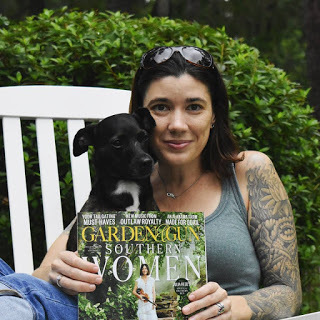
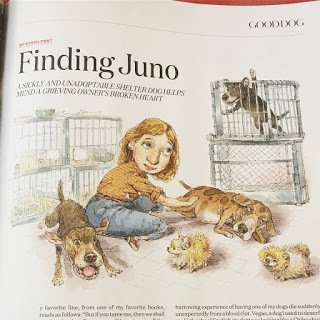
Cheers, and Happy Reading.....


Published on July 21, 2018 06:00
July 20, 2018
Book Bites: Sarah Ward, author of Aesop Lake
Today I'm branching out again by bringing you an interview with YA author Sarah Ward.
Aesop Lake
hits shelves next Tuesday (July 24th) and tells the story of two teenagers living through and grappling with the aftermath of a heinous hate crime in rural Vermont. Read on as Ward discusses writing for teens, NANOWRIMO, and creating a book that both embraces and confronts a timely, and difficult, subject.
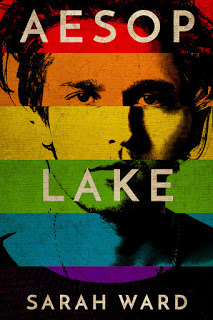 "Emphasizing that there’s no shame in recovering at your own pace but no refuge from responsibility either, three illustrated Aesop fables punctuate the well-paced novel." -Kirkus Reviews
"Emphasizing that there’s no shame in recovering at your own pace but no refuge from responsibility either, three illustrated Aesop fables punctuate the well-paced novel." -Kirkus Reviews
What drew you to the genre you write in?
Ever since I was barely an adolescent myself I wanted to write for young adults. This age group is always relevant, carving new paths into the way our culture thinks and behaves, and yet there is something so familiar to their experience that we can relate to the pain, and the sweetness, of moving from childhood into adulthood. As a parent of two young adults, and a youth group leader at a Unitarian Universalist Fellowship, I have spent a lot of time talking with teens and early twenty-somethings. They are brimming with energy, passion and discovery. When I worked as a clinical social worker, my favorite clients were young adults, because they always came in with such bravado, but when treated with respect and kindness they opened up very quickly. I find that writing for them is just as satisfying. I believe that we shouldn’t “write down” to what we think is safe; we should challenge young adults with difficult topics and real-life situations. I also find that adults enjoy YA as much as the youth, as we have all been there, and can relate on so many levels.
Were there any parts of your novel that were edited out, but which you miss terribly?
Yes, in the first several drafts, Aesop Lake was told from three perspectives: Leda, Jonathan and Marcia. Marcia is Jonathan’s mother, and I felt strongly that her perspective on the hate crime was important, and that she could bring in the voice of the community. However, my editor felt that Marcia’s voice wasn’t necessary, and that it was a little odd to have an adult tell part of the story in a YA novel. So, I talked with my daughter, who was seventeen at the time, and she agreed with my editor. I had to cut ten chapters, shift the important pieces into Leda & Jonathan’s story, and then write four new chapters to make up for the gaps in the story line, all on a three-month timeline. Whew! Not only was it painful, it felt like a herculean task to take on over the holidays, but I did it!
Have you ever given up on a writing project?
Yes, my first attempt at a novel fell flat after fifty pages. I was listening to a web-cast that suggested outlining the novel to help you write it faster. But as soon as I completed the outline I was bored. I couldn’t keep the intensity going in my storyline, and the characters felt shallow, as if I were trying to make them do what I had written in the outline. I learned a valuable lesson from that experience, and never outlined again. This novel, Aesop Lake, was written during National Novel Writing Month 2015 (NANOWRIMO), where you spend the entire month of November trying to pump out 50,000 words of a novel. You can’t critique yourself, and you have no idea what is going to happen in the story. Every day you are just doing the best you can to get to a specific word count, and at the end of that magical month Aesop Lake had a first (horribly written) draft! And then the work began to shape and craft what became the final product.
Do you have a set routine as a writer?
No, I sometimes wish that I was one of those writers who could get up at O-dark-thirty, to write for an hour before the rest of the world stirred or stay up late every evening and pull prose from the dusty corners of my office, but I can’t. I like to sleep in to six-thirty and I don’t have an office in our small condo. I mostly write on the weekends, sometimes in the library, or at a coffee shop, or Panera, if it’s not too crowded. When my daughters were young I would squeeze in thirty minutes of writing while they were at a music lesson, or when I was waiting for their lacrosse practice to end. I called this “stealing time” and it worked really well. Now that they are older, and I don’t need to cart them around, I have to be more disciplined about finding time to write. I like to go away for a weekend retreat to a friend’s house, or a cabin in the woods and get as much done as possible. For over a decade I had a strong writing group that met once or twice a month, but we have drifted apart and their goals changed. Now I get together with my best writing buddy, Tammy, and we keep each other on track. Until I can give up the day job, I will just keep fitting it in and around the rest of my life, but it seems to be working.
What is the best piece of writing advice you’ve ever received?
This past spring, I was at the 2018 American Writers Programs (AWP) conference, and I sat in on several panels about writing for young adults about challenging subjects. My new novel, Aesop Lake, takes on a hate crime against a gay couple, and one of my main protagonists, Leda, who witnesses the crime, has to choose between doing the right thing, or protecting her boyfriend and family. I asked one of the panelists, Sarah Aronson, how does she cope with negative reactions to her topics, since I'm assured that some will judge my book as too violent, anti-Christian, etc (even though it is not), and Sarah's response was, "as soon as this book is released, start writing the next one. Don't get focused on any negative press, or the haters, because they don't really matter. What matters is getting back to work, telling the next story that is ready to be written, and putting your energy into the creative process." I can't wait to do just that, as I've been thinking about my next novel for six months. I'm ready to go.
 "Emphasizing that there’s no shame in recovering at your own pace but no refuge from responsibility either, three illustrated Aesop fables punctuate the well-paced novel." -Kirkus Reviews
"Emphasizing that there’s no shame in recovering at your own pace but no refuge from responsibility either, three illustrated Aesop fables punctuate the well-paced novel." -Kirkus Reviews What drew you to the genre you write in?
Ever since I was barely an adolescent myself I wanted to write for young adults. This age group is always relevant, carving new paths into the way our culture thinks and behaves, and yet there is something so familiar to their experience that we can relate to the pain, and the sweetness, of moving from childhood into adulthood. As a parent of two young adults, and a youth group leader at a Unitarian Universalist Fellowship, I have spent a lot of time talking with teens and early twenty-somethings. They are brimming with energy, passion and discovery. When I worked as a clinical social worker, my favorite clients were young adults, because they always came in with such bravado, but when treated with respect and kindness they opened up very quickly. I find that writing for them is just as satisfying. I believe that we shouldn’t “write down” to what we think is safe; we should challenge young adults with difficult topics and real-life situations. I also find that adults enjoy YA as much as the youth, as we have all been there, and can relate on so many levels.
Were there any parts of your novel that were edited out, but which you miss terribly?
Yes, in the first several drafts, Aesop Lake was told from three perspectives: Leda, Jonathan and Marcia. Marcia is Jonathan’s mother, and I felt strongly that her perspective on the hate crime was important, and that she could bring in the voice of the community. However, my editor felt that Marcia’s voice wasn’t necessary, and that it was a little odd to have an adult tell part of the story in a YA novel. So, I talked with my daughter, who was seventeen at the time, and she agreed with my editor. I had to cut ten chapters, shift the important pieces into Leda & Jonathan’s story, and then write four new chapters to make up for the gaps in the story line, all on a three-month timeline. Whew! Not only was it painful, it felt like a herculean task to take on over the holidays, but I did it!
Have you ever given up on a writing project?
Yes, my first attempt at a novel fell flat after fifty pages. I was listening to a web-cast that suggested outlining the novel to help you write it faster. But as soon as I completed the outline I was bored. I couldn’t keep the intensity going in my storyline, and the characters felt shallow, as if I were trying to make them do what I had written in the outline. I learned a valuable lesson from that experience, and never outlined again. This novel, Aesop Lake, was written during National Novel Writing Month 2015 (NANOWRIMO), where you spend the entire month of November trying to pump out 50,000 words of a novel. You can’t critique yourself, and you have no idea what is going to happen in the story. Every day you are just doing the best you can to get to a specific word count, and at the end of that magical month Aesop Lake had a first (horribly written) draft! And then the work began to shape and craft what became the final product.
Do you have a set routine as a writer?
No, I sometimes wish that I was one of those writers who could get up at O-dark-thirty, to write for an hour before the rest of the world stirred or stay up late every evening and pull prose from the dusty corners of my office, but I can’t. I like to sleep in to six-thirty and I don’t have an office in our small condo. I mostly write on the weekends, sometimes in the library, or at a coffee shop, or Panera, if it’s not too crowded. When my daughters were young I would squeeze in thirty minutes of writing while they were at a music lesson, or when I was waiting for their lacrosse practice to end. I called this “stealing time” and it worked really well. Now that they are older, and I don’t need to cart them around, I have to be more disciplined about finding time to write. I like to go away for a weekend retreat to a friend’s house, or a cabin in the woods and get as much done as possible. For over a decade I had a strong writing group that met once or twice a month, but we have drifted apart and their goals changed. Now I get together with my best writing buddy, Tammy, and we keep each other on track. Until I can give up the day job, I will just keep fitting it in and around the rest of my life, but it seems to be working.
What is the best piece of writing advice you’ve ever received?
This past spring, I was at the 2018 American Writers Programs (AWP) conference, and I sat in on several panels about writing for young adults about challenging subjects. My new novel, Aesop Lake, takes on a hate crime against a gay couple, and one of my main protagonists, Leda, who witnesses the crime, has to choose between doing the right thing, or protecting her boyfriend and family. I asked one of the panelists, Sarah Aronson, how does she cope with negative reactions to her topics, since I'm assured that some will judge my book as too violent, anti-Christian, etc (even though it is not), and Sarah's response was, "as soon as this book is released, start writing the next one. Don't get focused on any negative press, or the haters, because they don't really matter. What matters is getting back to work, telling the next story that is ready to be written, and putting your energy into the creative process." I can't wait to do just that, as I've been thinking about my next novel for six months. I'm ready to go.
Published on July 20, 2018 09:40
July 12, 2018
Interview on Covered
Many thanks to Harry Marks and the Covered podcast (which I highly recommend for anyone interested in learning more about books, authors, writing and the publishing world) for hosting me and letting me ramble on about everything from the trials of writing a trilogy to why I love the storytelling in video games. Cheers and happy listening!
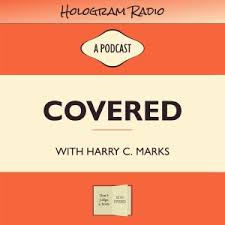

Published on July 12, 2018 06:43
July 6, 2018
Book Bites: Gale Massey, author of The Girl from Blind River
Today, I've got a local fav stopping by to chat. Gale Massey, author of
The Girl from Blind River
, also hails from St. Petersburg Florida and her debut novel- out next Tuesday!- is a knock-out. A dark, complex and gritty tale of family loyalty gone wrong, The Girl from Blind River is an unforgettable read.
 “The Girl From Blind River is a part coming-of-age, part redemption story with a razor sharp edge... The plot is twisted and the prose nuanced and graceful, but it's the characters that stick with you... Stellar debut!"
“The Girl From Blind River is a part coming-of-age, part redemption story with a razor sharp edge... The plot is twisted and the prose nuanced and graceful, but it's the characters that stick with you... Stellar debut!"
―Kate Moretti
What is the best piece of writing advice you’ve ever received?
I heard Michael Koryta say, “Keep your head down and keep moving forward.” This bit of wisdom helped me get through the first draft. It’s easy to get distracted by craft books, writing conferences and classes. Those things serve an important purpose but eventually you have to put all that aside, assume you’ve learned enough to get through a rough draft, and get down to business. Of course, there has to be a story in there, a plot with twists, characters that possess depth, a setting that is fully realized. But none of that can happen if you don’t put your head down and write.
How important is the setting in your novel?
Well, it’s crucial really. In Blind River there are broken sidewalks, freezing rain, a diner, a pawn shop. There’s a river that smells of runoff from the town’s only manufacturing plant. Then there’s the Walmart on the highway just outside of town. I love using weather to intensify a scene. Snow and ice, rain, leads to runny noses, freezing fingertips. These things create a scene and an atmosphere for the reader to experience. Jamie feels ensnared by her family and Blind River, I want the reader to feel what she feels, so they’ll root for her to get the hell out of there.
Are there any symbols running throughout your novel?
I use poker and gambling to symbolize some aspects of American culture. Children in this country are sold a dream they can rise from the circumstance they are born into, that the American Dream will come true for anyone willing to work hard enough, that pulling one’s self up from the bootstraps is actually possible. But many people are born into circumstance they will never find their way out of and the dream of making a better life for themselves and their children really isn’t viable. That’s why the lottery system has seen such a crazy boom in the last three or four decades. People living in poverty, such as the kind I grew up in, know deep down that education alone isn’t going to pull them out of their circumstances, that dream jobs have vanished in the tumultuous economy – and matching five random numbers on a ticket bought at the 7-Eleven might be their only solution. Jamie sees poker as her only real avenue to get out of Blind River but the odds are definitely not in her favor.
What single book has been the most influential to you as a writer?
I have to mention two. Connie May Fowler’s Before Women Had Wings and Daniel Woodrell’s Winter’s Bone. I saw myself and my roots reflected in both those books and came to see that stories about girls were important to both our culture and also spoke to some deep yearning inside of me. I read a lot of books in between those two and eventually began to believe I had something to add to the discussion.
What do you wish more readers would ask you about?
Once the book gets out into the world (July10th!) I hope readers will notice and want to discuss the subtle degrees of sexual orientation experienced by a couple characters, and how that plays into the family dynamics. I’d love to discuss that more.
 “The Girl From Blind River is a part coming-of-age, part redemption story with a razor sharp edge... The plot is twisted and the prose nuanced and graceful, but it's the characters that stick with you... Stellar debut!"
“The Girl From Blind River is a part coming-of-age, part redemption story with a razor sharp edge... The plot is twisted and the prose nuanced and graceful, but it's the characters that stick with you... Stellar debut!"―Kate Moretti
What is the best piece of writing advice you’ve ever received?
I heard Michael Koryta say, “Keep your head down and keep moving forward.” This bit of wisdom helped me get through the first draft. It’s easy to get distracted by craft books, writing conferences and classes. Those things serve an important purpose but eventually you have to put all that aside, assume you’ve learned enough to get through a rough draft, and get down to business. Of course, there has to be a story in there, a plot with twists, characters that possess depth, a setting that is fully realized. But none of that can happen if you don’t put your head down and write.
How important is the setting in your novel?
Well, it’s crucial really. In Blind River there are broken sidewalks, freezing rain, a diner, a pawn shop. There’s a river that smells of runoff from the town’s only manufacturing plant. Then there’s the Walmart on the highway just outside of town. I love using weather to intensify a scene. Snow and ice, rain, leads to runny noses, freezing fingertips. These things create a scene and an atmosphere for the reader to experience. Jamie feels ensnared by her family and Blind River, I want the reader to feel what she feels, so they’ll root for her to get the hell out of there.
Are there any symbols running throughout your novel?
I use poker and gambling to symbolize some aspects of American culture. Children in this country are sold a dream they can rise from the circumstance they are born into, that the American Dream will come true for anyone willing to work hard enough, that pulling one’s self up from the bootstraps is actually possible. But many people are born into circumstance they will never find their way out of and the dream of making a better life for themselves and their children really isn’t viable. That’s why the lottery system has seen such a crazy boom in the last three or four decades. People living in poverty, such as the kind I grew up in, know deep down that education alone isn’t going to pull them out of their circumstances, that dream jobs have vanished in the tumultuous economy – and matching five random numbers on a ticket bought at the 7-Eleven might be their only solution. Jamie sees poker as her only real avenue to get out of Blind River but the odds are definitely not in her favor.
What single book has been the most influential to you as a writer?
I have to mention two. Connie May Fowler’s Before Women Had Wings and Daniel Woodrell’s Winter’s Bone. I saw myself and my roots reflected in both those books and came to see that stories about girls were important to both our culture and also spoke to some deep yearning inside of me. I read a lot of books in between those two and eventually began to believe I had something to add to the discussion.
What do you wish more readers would ask you about?
Once the book gets out into the world (July10th!) I hope readers will notice and want to discuss the subtle degrees of sexual orientation experienced by a couple characters, and how that plays into the family dynamics. I’d love to discuss that more.
Published on July 06, 2018 09:12
July 1, 2018
The Great Fall Book Preview- 2018!
Here we go! All the upcoming books I'm most looking forward to for the rest of 2018. Thanks to everyone who provided suggestions and be sure to check out the Reader Picks at the bottom of the list. Also, take a look back at my Spring 2018 list for some of the fantastic books that have already hit the shelves this year. Ahh! So many books! Happy Reading!
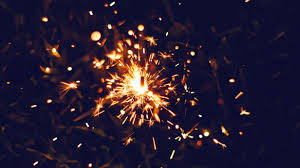 JULY:
JULY:
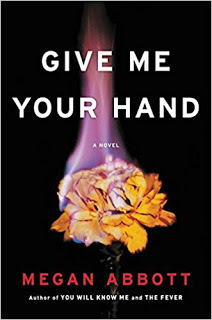

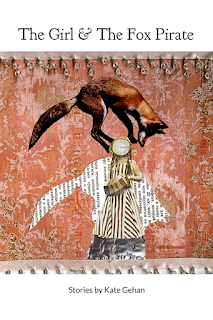
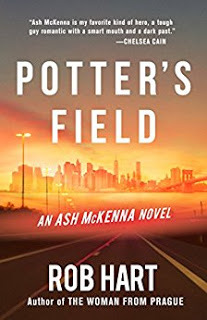
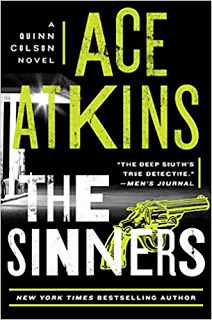
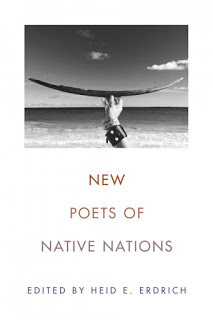
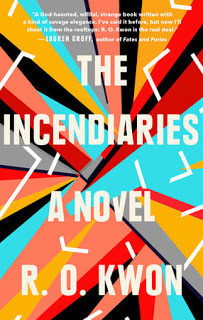
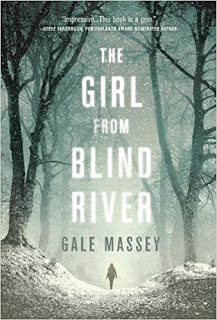
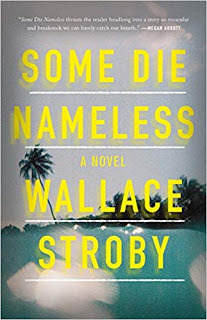
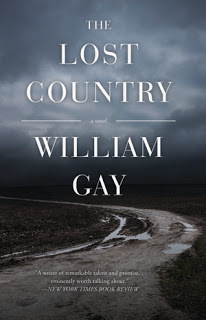
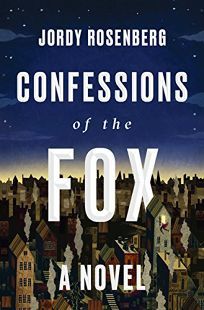
AUGUST:
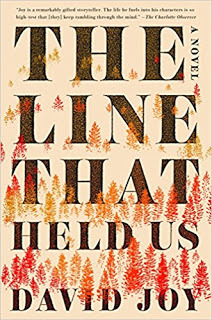
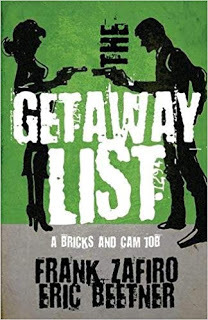
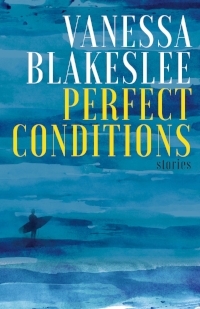
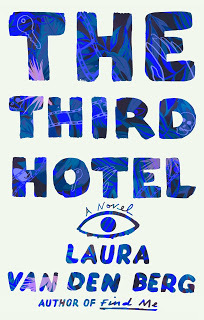

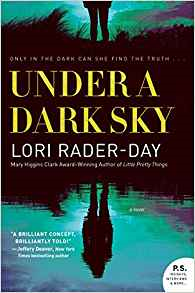
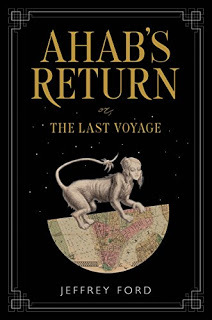
SEPTEMBER:
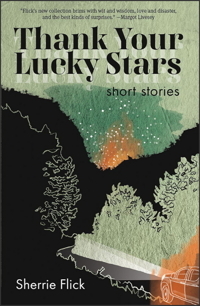
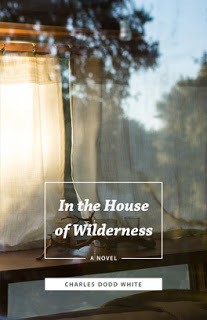
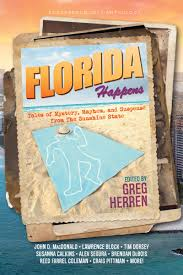
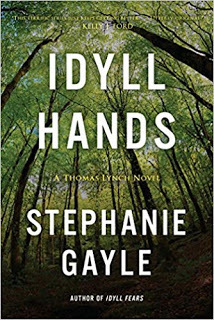
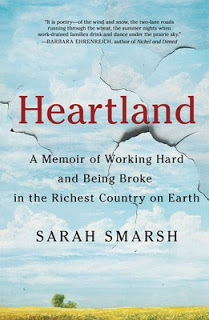
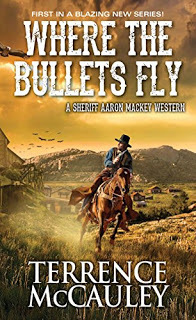
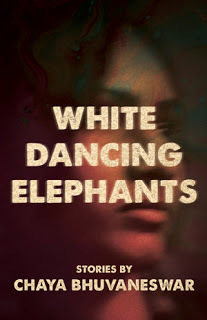
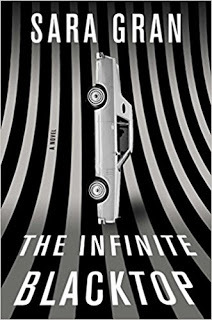
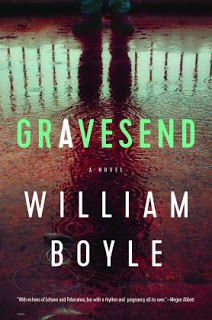
OCTOBER:
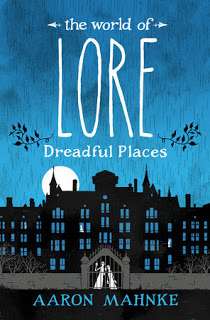
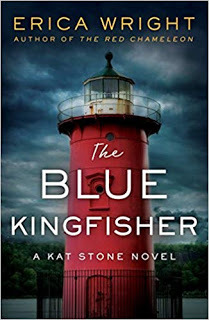
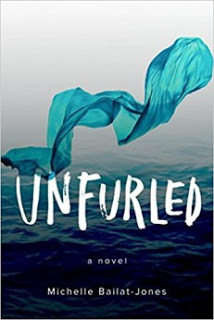
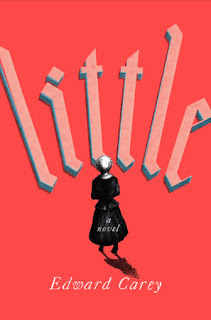
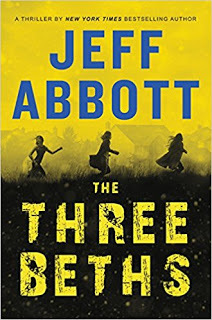
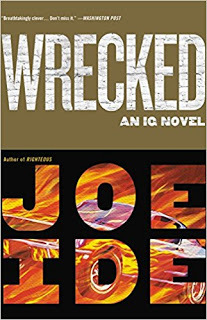
NOVEMBER:
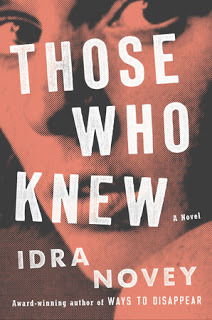
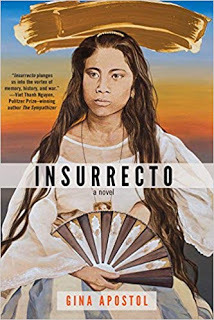

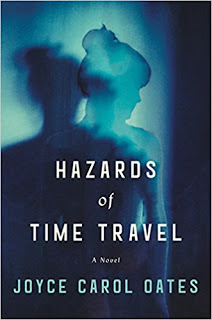
DECEMBER:
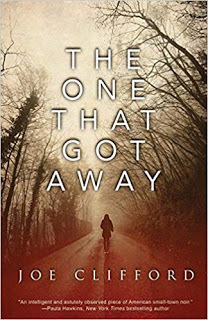
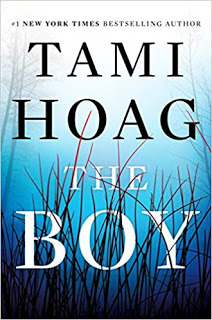
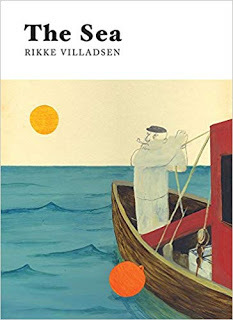
READER PICKS:
The Shortest Way Home by Miriam Parker (July)
Trial on Mount Koya by Susan Spann (July)
Unclean Jobs for Women and Girls by Alissa Nutting (July)
Nightwolf by Willie Davis (July)
The Blurry Years by Eleanor Kriseman (July)
Assisted Living by Erin Murphy (July)
Pretend We Live Here by Genevieve Hudson (July)
The Poisoned City by Anna Clark (July)
The Hazard's of Good Fortune by Seth Greenland (August)
TV Girls by Dana Diehl (August)
Trust Me by Hank Phillipi Ryan (August)
Graffiti Creek by Matt Coleman (August)
Cherry by Nico Walker (August)
Pieces of Her by Karin Slaughter (August)
Presiding Over the Damned by Liam Sweeny (August)
When Rap Spoke Straight to God by Erica Dawson (September)
Red Hotel by Gary Grossman and Ed Fuller (September)
Boise Longpig Hunting Club by Nick Kolakowski (September)
Dreamin' in '89 by Todd Monahan (September)
We Sold Our Souls by Grady Hendrix (September)
The Spying Moon by Sandra Ruttan (September)
A Certain Loneliness by Sandra Gail Lambert (September)
The Devil's Wind by Steve Goble (September)
The Last Danger by Rusty Barnes (October)
Adult Teeth by Jeremy Wilson (October)
The Scoundrel's Among Us by Darrin Doyle (October)
Under My Skin by Lisa Unger (October)
Go to My Grave by Catriona McPherson (October)
One Small Spark by Jackie Minniti (October)
Nighttown by Timothy Hallinan (November)
Race, Nation, Translation by Zoe Wicomb (November)
Peach by Wayne Barton (November)
The Place You're Supposed to Laugh by Jenn Rossman (November)
Into the Night by Sarah Bailey (December)
The Day the Sun Died by Yan Lianke (December)
 JULY:
JULY:










AUGUST:







SEPTEMBER:









OCTOBER:






NOVEMBER:




DECEMBER:



READER PICKS:
The Shortest Way Home by Miriam Parker (July)
Trial on Mount Koya by Susan Spann (July)
Unclean Jobs for Women and Girls by Alissa Nutting (July)
Nightwolf by Willie Davis (July)
The Blurry Years by Eleanor Kriseman (July)
Assisted Living by Erin Murphy (July)
Pretend We Live Here by Genevieve Hudson (July)
The Poisoned City by Anna Clark (July)
The Hazard's of Good Fortune by Seth Greenland (August)
TV Girls by Dana Diehl (August)
Trust Me by Hank Phillipi Ryan (August)
Graffiti Creek by Matt Coleman (August)
Cherry by Nico Walker (August)
Pieces of Her by Karin Slaughter (August)
Presiding Over the Damned by Liam Sweeny (August)
When Rap Spoke Straight to God by Erica Dawson (September)
Red Hotel by Gary Grossman and Ed Fuller (September)
Boise Longpig Hunting Club by Nick Kolakowski (September)
Dreamin' in '89 by Todd Monahan (September)
We Sold Our Souls by Grady Hendrix (September)
The Spying Moon by Sandra Ruttan (September)
A Certain Loneliness by Sandra Gail Lambert (September)
The Devil's Wind by Steve Goble (September)
The Last Danger by Rusty Barnes (October)
Adult Teeth by Jeremy Wilson (October)
The Scoundrel's Among Us by Darrin Doyle (October)
Under My Skin by Lisa Unger (October)
Go to My Grave by Catriona McPherson (October)
One Small Spark by Jackie Minniti (October)
Nighttown by Timothy Hallinan (November)
Race, Nation, Translation by Zoe Wicomb (November)
Peach by Wayne Barton (November)
The Place You're Supposed to Laugh by Jenn Rossman (November)
Into the Night by Sarah Bailey (December)
The Day the Sun Died by Yan Lianke (December)
Published on July 01, 2018 10:44
June 29, 2018
Book Bites: Jared Yates Sexton, author of The People Are Going to Rise Like the Waters Upon Your Shore
Book Bites: Short and Sweet Interviews for Readers on the Go
One of the most interesting, and well written, books I've read this spring is Jared Yates Sexton's The People Are Going to Rise Like the Waters Upon You Shore: A Story of American Rage , a chronicle of the insanity of the 2016 election. Many of you know may know Sexton for his infiltration of and live tweeting from Trump rallies and for his political essays, but Sexton is also a talented fiction writer and all around brilliant and compassionate human being. He graciously took the time to stop and answer some of my more challenging questions. Read on and then be sure to check out his work. You won't be disappointed, I promise you.
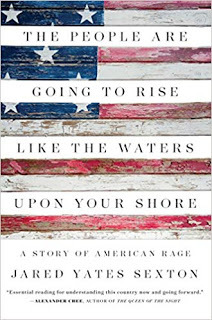 "Sexton’s is a critical and important voice in helping readers understand the cultural and political sea change the election created." ―Booklist
"Sexton’s is a critical and important voice in helping readers understand the cultural and political sea change the election created." ―Booklist
What drew you to the genre you write in?
Honestly, I always wanted to write. When I was little all I wanted in the world was to make stories, even before I could read. I’d sit there while my family read to me and think about how great it was that somebody could put all their thoughts down in a book. I used to sit on the floor with my tablet and draw characters and then make up stories about them – that was my way around not being able to write. I’m currently doing this political thing, which is a side-effect of my family’s focus on the political world, which was always a topic of discussion and dissection, but the fiction I write and want to write is more focused on trying to make sense of the world, which I’ve been trying to do since I knew there was a world to make sense of.
What piece of your own writing are you most proud of?
There’s a novel I wrote called Southpaw that never got published. It’s about a former Tea Party senatorial candidate who gets disgraced and has a chance to make a comeback in the era of Donald Trump. It got me my first agent and then the political thing took off and with Trump’s ascent it felt reactive instead of predictive, which it was in the beginning. I think it’s good, I’ve been told it’s good, and it’s just…yeah.
In your eyes, what does it mean to be a “successful” writer?
I have a hard time with this question. Probably a harder time than with anything. The answer is to feel like you’ve done your best job of articulating your thoughts on the world and getting across your philosophy. It’s about the writing, obviously. The other answer is that I don’t think writers ever actually feel successful. I had a decent-sized book in this last one, got to go to places, engaged with readers, some attention, and that should be considered successful, but like everyone else it feels like it’s not enough. It’s a constant struggle.
What single book has been the most influential to you as a writer?
This is such a hard question. I could point to any number of writers who basically taught me how to construct work, how to frame things, who gave me permission to write whatever I wanted however I wanted, but the one that really changed me the most was On The Road by Jack Kerouac. That book takes a lot of grief, but it more or less transformed me as a young man. I came from a very conservative town and when I read that book at the age of 20 I saw that the world was so much different than I ever thought it could be. It challenged everything I knew, made me reconsider the very nature of reality, and ushered me into adulthood.
What do you wish more readers would ask you about?
My fiction. Honest to god, I miss it so bad and I just wish there wasn’t this Trump thing to contend with. I didn’t want to wrestle with Donald Trump and the decline of our democracy. I wanted so much for him to lose in November of 2016 so I could get back to writing, but I feel like as long as this thing is burning I have to try and fight it. My fiction touched on this stuff, the masculine insecurity, the fascist tendencies, the fragility of culture, and I want to fight this war on that front.
One of the most interesting, and well written, books I've read this spring is Jared Yates Sexton's The People Are Going to Rise Like the Waters Upon You Shore: A Story of American Rage , a chronicle of the insanity of the 2016 election. Many of you know may know Sexton for his infiltration of and live tweeting from Trump rallies and for his political essays, but Sexton is also a talented fiction writer and all around brilliant and compassionate human being. He graciously took the time to stop and answer some of my more challenging questions. Read on and then be sure to check out his work. You won't be disappointed, I promise you.
 "Sexton’s is a critical and important voice in helping readers understand the cultural and political sea change the election created." ―Booklist
"Sexton’s is a critical and important voice in helping readers understand the cultural and political sea change the election created." ―Booklist What drew you to the genre you write in?
Honestly, I always wanted to write. When I was little all I wanted in the world was to make stories, even before I could read. I’d sit there while my family read to me and think about how great it was that somebody could put all their thoughts down in a book. I used to sit on the floor with my tablet and draw characters and then make up stories about them – that was my way around not being able to write. I’m currently doing this political thing, which is a side-effect of my family’s focus on the political world, which was always a topic of discussion and dissection, but the fiction I write and want to write is more focused on trying to make sense of the world, which I’ve been trying to do since I knew there was a world to make sense of.
What piece of your own writing are you most proud of?
There’s a novel I wrote called Southpaw that never got published. It’s about a former Tea Party senatorial candidate who gets disgraced and has a chance to make a comeback in the era of Donald Trump. It got me my first agent and then the political thing took off and with Trump’s ascent it felt reactive instead of predictive, which it was in the beginning. I think it’s good, I’ve been told it’s good, and it’s just…yeah.
In your eyes, what does it mean to be a “successful” writer?
I have a hard time with this question. Probably a harder time than with anything. The answer is to feel like you’ve done your best job of articulating your thoughts on the world and getting across your philosophy. It’s about the writing, obviously. The other answer is that I don’t think writers ever actually feel successful. I had a decent-sized book in this last one, got to go to places, engaged with readers, some attention, and that should be considered successful, but like everyone else it feels like it’s not enough. It’s a constant struggle.
What single book has been the most influential to you as a writer?
This is such a hard question. I could point to any number of writers who basically taught me how to construct work, how to frame things, who gave me permission to write whatever I wanted however I wanted, but the one that really changed me the most was On The Road by Jack Kerouac. That book takes a lot of grief, but it more or less transformed me as a young man. I came from a very conservative town and when I read that book at the age of 20 I saw that the world was so much different than I ever thought it could be. It challenged everything I knew, made me reconsider the very nature of reality, and ushered me into adulthood.
What do you wish more readers would ask you about?
My fiction. Honest to god, I miss it so bad and I just wish there wasn’t this Trump thing to contend with. I didn’t want to wrestle with Donald Trump and the decline of our democracy. I wanted so much for him to lose in November of 2016 so I could get back to writing, but I feel like as long as this thing is burning I have to try and fight it. My fiction touched on this stuff, the masculine insecurity, the fascist tendencies, the fragility of culture, and I want to fight this war on that front.
Published on June 29, 2018 12:54
June 15, 2018
Book Bites: Robert James Russell, author of Mesilla
Book Bites: Short and Sweet Interviews for Readers on the Go
Today, I'm lucky enough to bring you an interview with Robert James Russell, a literary Jack-of-all-Trades, who just so happens to do incredible work with all of those trades. Author of the novellas Sea of Trees and Mesilla , Russell is also the force behind Midwestern Gothic and Cheap Pop. Oh, and then he's also a talented artist and highly honored short fiction and non-fiction writer and poet. All around, he's a kick-ass writer and literary citizen and I'm thrilled to have him stop to give his take on the necessity of setting, feral camels, Faulkner, and what it truly means to find success as a creative person.
 If McCarthy and Emerson collaborated on a novella, solicited Herman Hesse to edit it, Jim Jarmusch to film it, and Leonard Cohen to do the score, the result might capture some of the elusive seductiveness of Russell’s work.” —Matthew Gavin Frank, author of
Preparing the Ghost
If McCarthy and Emerson collaborated on a novella, solicited Herman Hesse to edit it, Jim Jarmusch to film it, and Leonard Cohen to do the score, the result might capture some of the elusive seductiveness of Russell’s work.” —Matthew Gavin Frank, author of
Preparing the Ghost
In your eyes, what does it mean to be a “successful” writer?
Being successful, to me, is, at its heart, a simple thing: to be true to my vision, to write stories I want to tell, stories I think need to be told. Success is, then, not feeling pressure to conform.
But, see, with writing, it’s so easy to compare yourself to other people, especially if you work in a similar genre or have a comparable style—this is doubly so with writers who use social media and are actively involved in the community. I think it’s important then to define what “success” means and that what you get out of it might be something completely different than writer X, Y, or Z. For me, this is a constant battle—reminding myself what I need to be happy and content with my work. I’ve been fortunate to have a couple novellas published; I write the things I want to write, and publishers have decided they were good enough to take on. That, alone—that my words have been shared, that editors have said Yes to my work when there are so many compelling writers and stories out there—is success. At the end of the day, being happy with your creation and your vision has to be enough: even if you are putting down a dozen words a day, those are words that didn’t exist the day before, words you are literally breathing into being that no one else has. That is a miraculous, marvelous thing. That is success.
What was something interesting you learned while researching that didn’t make it into one of your books?
For Mesilla, it was a lot of stuff, to be honest: I love the history of the American West (while recognizing how problematic it has been to mythologize it in popular culture). And yet, I get swept up in all the little nooks and crannies that aren’t readily talked or written about. I had a scene I wanted to put in about feral camels in the Southwest United States—they were part of the very real United States Camel Corp, an ill-fated experiment to import camels to be used as pack animals in Texas and New Mexico territories. Once the Civil War hit, the Corp was disbanded and the camels either were sold or escaped. I loved the idea of my characters coming into contact with them, even in passing, this romantic notion that the camels have flourished out here in the wilds, no longer bothered by humans. I also researched a lot about wild horses, how they were captured in the Old West, and Mustangers especially, specialized hunters whose job it was to find and capture wild mustangs. It was a grueling, dangerous job, and there was a trick called creasing that many of them employed. Creasing involved firing a shot—Oh, you had to be a crack shot!—and piercing the mustang’s neck just below the skin in an exact spot. An inch in the wrong direction and the horse would be killed instantly, but if done right, the horse would be temporarily paralyzed, knocked down, so the mustangers could ride up and collect it. It was a brazen, hazardous, cruel thing that only worked a small percentage of the time—this, to me, exemplifies the foolhardy spirit of The West, the brash pioneer spirit of expansion.
Neither of these made it into the novella, but I loved learning about them and am hoping to incorporate them into future work.
What is the best piece of writing advice you’ve ever received?
Goodness, perhaps it’s cliché at this point, but the advice that has resonated most with me as a writer comes from Elmore Leonard: Try to leave out the part that readers tend to skip. For me, this has been a creed: write effectively and don’t lose your audience. It’s taught me to be efficient, to tell the story in 100 words instead of 1,000, and to be able to anticipate the reader’s needs. How can I lay out necessary exposition while not going overboard, and then jump to a thrilling, terrifying scene where the antagonist is closing in and you don’t know what’s about to happen? The way I read this advice, it is constantly about teetering: give just enough, dangle, and then go in the completely other direction for a bit, then back again, and back again. I want the narrative, even in a short literary story, to be twisty, to keep your interest, to give you just enough to help outline the basics and ground rules of the world, but without giving it all away. The best stories, the absolute best work, I think, allows our minds to make a narrative our own. I am desperate to make sure that there’s no parts to skip—that it all means something in the end.
How important is the setting in your novella?
Critical—I often start stories based on settings and landscapes; in real life, I’m captivated by landscapes, by lush forests and wild low deserts and everything in-between. This is where my imagination is at its most raw: I touch the bark of a tree, imagine the possibilities of my characters hiking through these same sceneries, and start to build narratives. How are they here? Why? Who’s after them and how can I make it interesting? For Mesilla, I wanted to write a story in the desert set during the Civil War featuring a deserter. It all started with this basic concept, set in the New Mexico Territory, this lawless, wild place. And then, I answered my own questions: It made it inherently more interesting, I thought, to start the story in media res, where our hero—anti-hero, really—is already gravely wounded, on the run from a mysterious figure relentlessly hunting him down, having to navigate a fairly inhospitable tract of land, trying, desperately, just to survive. To me, right there…that was the story, and it was completely dependent on the setting. It couldn’t take place in California or Alaska—it needed to be after the Battle of Glorietta Pass, in a place that was just so unknown to most Americans, a place to get lost in. That, too, represents one of the themes of the book: Is it possible to ignore our past and start over? What do we carry with us, whether we know it or not?
In my new book, which takes place in northern Michigan in 1943, it was essential to set it in a remote place, removed from the world. I wanted to explore the effects of World War II on a small, detached community, how terrifying that might be, not knowing the extent of the terror in the world, its reach. I had in my mind the lavish forests of northern Michigan, the bucolic beauty unrivaled, far as I’m concerned, and a horse farm there, at the edge of a large, dark, dangerous wood. It was the first thing I imagined when laying out the book, and the central focus of the narrative. I do not want my stories to exist in a vacuum—I want them taking place somewhere specific, and only that place. Maybe it’s a call back to when I was a kid, imagining the trees in my neighborhood as sleeping, towering giants, power lines as portals to other worlds, but landscape is where it all starts: It’s what inspires and awes and terrifies. So, yes, I want the reader to look at it Mesilla, any of my work, and say: Yes, it could only be set right here, at this time, in this space. It couldn’t be anything else.
What single book has been the most influential to you as a writer?
I am continually finding books that influence me—I think it’s how we grow as writers, to learn and push ourselves to do better. But the one book I come back to that showed me how to expand my ideas of what a novel could be, that it could be anything we imagine it to be, is Faulkner’s As I Lay Dying. Oh, it was a marvelous discovery: he completely tore apart everything I thought a novel had to be, created his own, uniquely American world in a rather slim book. I loved that level of creation and creativity, how dependent on place it is to establish identities and relationships and the main narrative arc, and then how many rabbit holes it goes down to further dissect each of its characters’ psyches and inspirations and fears. Even now, writing a book that is completely contrary to the tone and style of As I Lay Dying, I think about it often: How can I use the world I’m creating in the book, around the characters, to help tell their story? How can I keep it interesting? How can I do something, no matter how small, that no one’s seen before? It pushes me, always pushes me, to be thinking about these things as I craft my narrative in ways, I hope, will interest the reader.
Today, I'm lucky enough to bring you an interview with Robert James Russell, a literary Jack-of-all-Trades, who just so happens to do incredible work with all of those trades. Author of the novellas Sea of Trees and Mesilla , Russell is also the force behind Midwestern Gothic and Cheap Pop. Oh, and then he's also a talented artist and highly honored short fiction and non-fiction writer and poet. All around, he's a kick-ass writer and literary citizen and I'm thrilled to have him stop to give his take on the necessity of setting, feral camels, Faulkner, and what it truly means to find success as a creative person.
 If McCarthy and Emerson collaborated on a novella, solicited Herman Hesse to edit it, Jim Jarmusch to film it, and Leonard Cohen to do the score, the result might capture some of the elusive seductiveness of Russell’s work.” —Matthew Gavin Frank, author of
Preparing the Ghost
If McCarthy and Emerson collaborated on a novella, solicited Herman Hesse to edit it, Jim Jarmusch to film it, and Leonard Cohen to do the score, the result might capture some of the elusive seductiveness of Russell’s work.” —Matthew Gavin Frank, author of
Preparing the Ghost
In your eyes, what does it mean to be a “successful” writer?
Being successful, to me, is, at its heart, a simple thing: to be true to my vision, to write stories I want to tell, stories I think need to be told. Success is, then, not feeling pressure to conform.
But, see, with writing, it’s so easy to compare yourself to other people, especially if you work in a similar genre or have a comparable style—this is doubly so with writers who use social media and are actively involved in the community. I think it’s important then to define what “success” means and that what you get out of it might be something completely different than writer X, Y, or Z. For me, this is a constant battle—reminding myself what I need to be happy and content with my work. I’ve been fortunate to have a couple novellas published; I write the things I want to write, and publishers have decided they were good enough to take on. That, alone—that my words have been shared, that editors have said Yes to my work when there are so many compelling writers and stories out there—is success. At the end of the day, being happy with your creation and your vision has to be enough: even if you are putting down a dozen words a day, those are words that didn’t exist the day before, words you are literally breathing into being that no one else has. That is a miraculous, marvelous thing. That is success.
What was something interesting you learned while researching that didn’t make it into one of your books?
For Mesilla, it was a lot of stuff, to be honest: I love the history of the American West (while recognizing how problematic it has been to mythologize it in popular culture). And yet, I get swept up in all the little nooks and crannies that aren’t readily talked or written about. I had a scene I wanted to put in about feral camels in the Southwest United States—they were part of the very real United States Camel Corp, an ill-fated experiment to import camels to be used as pack animals in Texas and New Mexico territories. Once the Civil War hit, the Corp was disbanded and the camels either were sold or escaped. I loved the idea of my characters coming into contact with them, even in passing, this romantic notion that the camels have flourished out here in the wilds, no longer bothered by humans. I also researched a lot about wild horses, how they were captured in the Old West, and Mustangers especially, specialized hunters whose job it was to find and capture wild mustangs. It was a grueling, dangerous job, and there was a trick called creasing that many of them employed. Creasing involved firing a shot—Oh, you had to be a crack shot!—and piercing the mustang’s neck just below the skin in an exact spot. An inch in the wrong direction and the horse would be killed instantly, but if done right, the horse would be temporarily paralyzed, knocked down, so the mustangers could ride up and collect it. It was a brazen, hazardous, cruel thing that only worked a small percentage of the time—this, to me, exemplifies the foolhardy spirit of The West, the brash pioneer spirit of expansion.
Neither of these made it into the novella, but I loved learning about them and am hoping to incorporate them into future work.
What is the best piece of writing advice you’ve ever received?
Goodness, perhaps it’s cliché at this point, but the advice that has resonated most with me as a writer comes from Elmore Leonard: Try to leave out the part that readers tend to skip. For me, this has been a creed: write effectively and don’t lose your audience. It’s taught me to be efficient, to tell the story in 100 words instead of 1,000, and to be able to anticipate the reader’s needs. How can I lay out necessary exposition while not going overboard, and then jump to a thrilling, terrifying scene where the antagonist is closing in and you don’t know what’s about to happen? The way I read this advice, it is constantly about teetering: give just enough, dangle, and then go in the completely other direction for a bit, then back again, and back again. I want the narrative, even in a short literary story, to be twisty, to keep your interest, to give you just enough to help outline the basics and ground rules of the world, but without giving it all away. The best stories, the absolute best work, I think, allows our minds to make a narrative our own. I am desperate to make sure that there’s no parts to skip—that it all means something in the end.
How important is the setting in your novella?
Critical—I often start stories based on settings and landscapes; in real life, I’m captivated by landscapes, by lush forests and wild low deserts and everything in-between. This is where my imagination is at its most raw: I touch the bark of a tree, imagine the possibilities of my characters hiking through these same sceneries, and start to build narratives. How are they here? Why? Who’s after them and how can I make it interesting? For Mesilla, I wanted to write a story in the desert set during the Civil War featuring a deserter. It all started with this basic concept, set in the New Mexico Territory, this lawless, wild place. And then, I answered my own questions: It made it inherently more interesting, I thought, to start the story in media res, where our hero—anti-hero, really—is already gravely wounded, on the run from a mysterious figure relentlessly hunting him down, having to navigate a fairly inhospitable tract of land, trying, desperately, just to survive. To me, right there…that was the story, and it was completely dependent on the setting. It couldn’t take place in California or Alaska—it needed to be after the Battle of Glorietta Pass, in a place that was just so unknown to most Americans, a place to get lost in. That, too, represents one of the themes of the book: Is it possible to ignore our past and start over? What do we carry with us, whether we know it or not?
In my new book, which takes place in northern Michigan in 1943, it was essential to set it in a remote place, removed from the world. I wanted to explore the effects of World War II on a small, detached community, how terrifying that might be, not knowing the extent of the terror in the world, its reach. I had in my mind the lavish forests of northern Michigan, the bucolic beauty unrivaled, far as I’m concerned, and a horse farm there, at the edge of a large, dark, dangerous wood. It was the first thing I imagined when laying out the book, and the central focus of the narrative. I do not want my stories to exist in a vacuum—I want them taking place somewhere specific, and only that place. Maybe it’s a call back to when I was a kid, imagining the trees in my neighborhood as sleeping, towering giants, power lines as portals to other worlds, but landscape is where it all starts: It’s what inspires and awes and terrifies. So, yes, I want the reader to look at it Mesilla, any of my work, and say: Yes, it could only be set right here, at this time, in this space. It couldn’t be anything else.
What single book has been the most influential to you as a writer?
I am continually finding books that influence me—I think it’s how we grow as writers, to learn and push ourselves to do better. But the one book I come back to that showed me how to expand my ideas of what a novel could be, that it could be anything we imagine it to be, is Faulkner’s As I Lay Dying. Oh, it was a marvelous discovery: he completely tore apart everything I thought a novel had to be, created his own, uniquely American world in a rather slim book. I loved that level of creation and creativity, how dependent on place it is to establish identities and relationships and the main narrative arc, and then how many rabbit holes it goes down to further dissect each of its characters’ psyches and inspirations and fears. Even now, writing a book that is completely contrary to the tone and style of As I Lay Dying, I think about it often: How can I use the world I’m creating in the book, around the characters, to help tell their story? How can I keep it interesting? How can I do something, no matter how small, that no one’s seen before? It pushes me, always pushes me, to be thinking about these things as I craft my narrative in ways, I hope, will interest the reader.
Published on June 15, 2018 07:15
June 14, 2018
Classic Crime, New York Style....
Oh, hey. I'm over at LitReactor today, talking to Terrence McCauley about his latest crime novel,
The Fairfax Incident
. Have a look.... (and then pick up McCauley's book- it's terrific!)
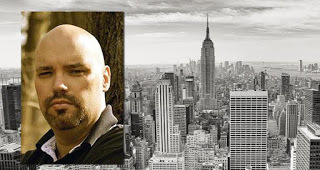

Published on June 14, 2018 07:17



